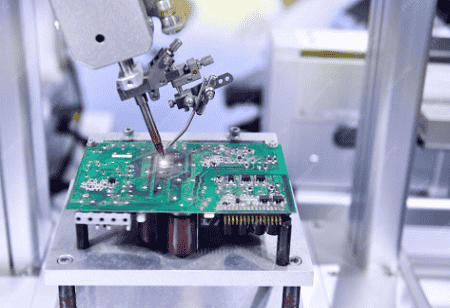
The Union Cabinet, chaired by Prime Minister Narendra Modi, has approved the four new semiconductor projects of India Semiconductor Mission (ISM).
The projects bring the total to 10 projects in 6 states at a total investment of ₹1.60 lakh crore. The four new projects, by SiCSem, Continental Device India Private Limited (CDIL), 3D Glass Solutions Inc., and Advanced System in Package (ASIP) Technologies, will be around ₹4,600 crore, directly involving over 2,000 skilled jobs for workers and indirect opportunities.
SiCSem, teaming up with Clas-SiC Wafer Fab Ltd. from the UK, will build India’s first commercial Silicon Carbide semiconductor plant in Bhubaneswar, Odisha.
Also Read: How Compressor Heat Recovery Drives Plant-Wide Energy Efficiency
It’ll produce 60,000 wafers and 96 million units yearly, powering things like electric vehicles, defense equipment, railways, and solar inverters. Likewise, 3D Glass Solutions Inc. will set up a high-tech packaging and glass substrate facility in Bhubaneswar, using advanced tech to make 69,600 glass panels and 50 million units annually for defense, AI, and automotive industries.
In Andhra Pradesh, ASIP, partnering with South Korea’s APACT Co. Ltd., will churn out 96 million units a year for mobile phones, set-top boxes, and cars. Meanwhile, CDIL will expand its Mohali, Punjab, plant to produce 158.38 million high-power devices like MOSFETs and IGBTs for electric vehicles, renewable energy, and industrial uses.
These projects, alongside India’s growing chip design efforts—supported by 278 academic institutions and 72 startups—will strengthen the country’s semiconductor industry. They’ll help meet the rising demand for chips in telecom, automotive, and consumer electronics, pushing India closer to self-reliance.
We use cookies to ensure you get the best experience on our website. Read more...